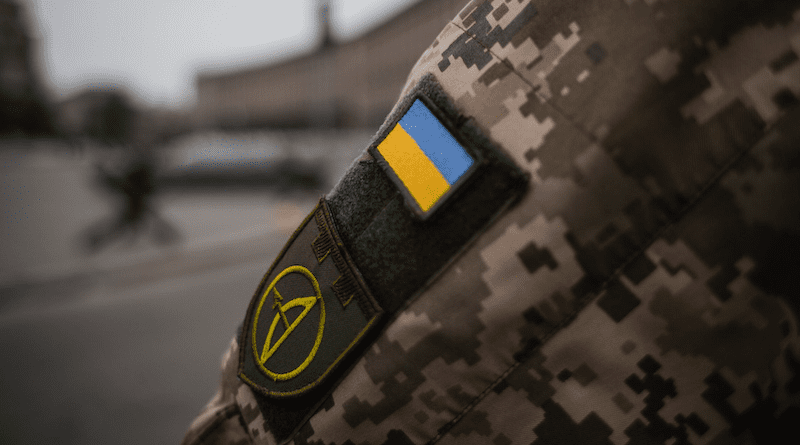Importance Of Conscripts To Protracted Russia-Ukraine War – OpEd
The Ukrainian drive to recruit, enroll and enlist far more civilians for military roles also termed as conscripts through its new mobilisation law and a law lowering military service age in April 2024 for the ongoing war against Russia suggests its desperate moves to replenish the dried frontlines of war suffering from casualties, war fatigues and loss of morale. Further, Ukraine is a country of 40 million people much lesser than one third population of Russia is in dire need of more conscripts to deter Summer offensives by Kremlin.
On the other side, Kremlin had previously ascertained and assured the war with Ukraine would only be fought by professionally-trained regular and contract soldiers. Ironically, it has admitted to the deployment of conscripts in the war with Ukraine. There are reports that Russia has recruited conscripts primarily from among the ethnic minorities making their citizenship contingent upon serving in the Russian army and it has also mobilised conscripts from the Ukrainian territory it had annexed in 2014 such as Donbas and Crimea. While the need of recruitment of conscripts can be fulfilled through forced mobilization or through volunteering, the authoritarian regime of President Vladimir Putin appeared to have resorted to forced mobilization with a strict control over mass media.
The conscripts prior to professional military training are expected to perform auxiliary and logistics functions rather than combating on the frontlines so that professionally-trained regular and contract armies can be relieved of those functions and be pushed to the front replenishing those who are already on the frontlines for a long duration. Only after a process of professional military training, the conscripts are supposed to join the combat positions.
However, Ukraine is primarily relying on volunteers to fight an outsize Russian army. To meet the Russian challenge, the Ukrainian armed forces now comprise more than one million people most of whom began their service after Russia’s invasion in February 2022. A draft of serving-age men began to facilitate recruitment of soldiers on a massive scale from among civilians without specifying a formal time limit for military service.
Challenges of Voluntary Mobilization
Voluntary conscription is a very sensitive and complex exercise. To mobilize people who live normal lives far away from the dangerous frontlines of war becomes more difficult when the war drags on and the endgame is not in sight. People who were abroad prior to the war began would hesitate to return, some would just be physically incapable and mentally insane, some would go hiding and missing on records and legitimacy for the war may also shrink as the battlefield dynamics do not favour their native country.
To know the skills and harness these through training the civilians for military roles on in a short period and build characters of discipline and cohesiveness to integrate them with professionals will be daunting tasks. The conscripts hail from diverse socio-economic and ethnic backgrounds.
Amid acute shortages of personnel on the frontlines and the desperate need to replenish the drained and depleted forces outnumbered by Russian forces along the frontline of 1000 kilometres, Ukraine has turned to Charm Offensive to fulfill its growing need of more conscripts as a way to balance democratic principles with stricter laws. It has gone for online registration allowing people to select their unit and functions suiting their skills, advertisements through billboards and social media and inducement by offering a wartime novelty.
The new mobilization law of Ukraine which was signed by President Volodymyr Zelensky in April 2024 has placed a new requirement on all men between 18 and 60 to register with country’s military and to carry their registration documents with them at all times. In a separate law, the country has lowered the military conscription age from 27 to 25 to induct sections of younger generations of civilians to military roles for the country. Meanwhile, Ukrainian Foreign Minister Dmytro Kuleba has averred recently that he had ordered consular services cut for all Ukrainian men of military age staying abroad except for those returning to Ukraine. Ukraine’s desperate moves to prepare the grounds for inducting civilians to military roles are evident but how much coercion the state can use to attain these objectives are yet to be seen.
A few provisions under the new mobilisation law also seek to undercut the democratic principles enshrined in the Ukrainian constitution. While the constitution which was framed during peacetime guarantees the right of free movement and the right of education, now anyone who has reached the stipulated age of military service including those who are pursuing studies at a university abroad can be conscripted. Further, under the new law, Ukrainians of serving age are to provide personal data, which may violate existing privacy laws. While it is to be whether Russia is keeping to its commitment to bring back all the conscripts and does not resort to forced conscripts anymore, Ukraine is walking through a tightrope where the desperate need of more conscripts has to be balanced against democratic principles of the Constitution. The new mobilisation law has coercive elements which run contrary to the notion volunteering conscripts on which Ukraine has been reliant so far.

